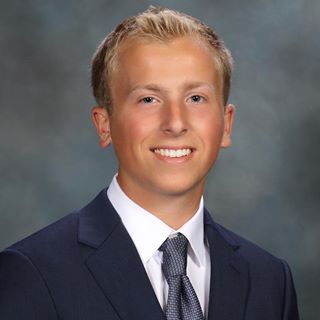
During quarantine, many people finished a record number of Netflix shows. We might have taken more walks, learned how to bake or cook extravagantly, or finally gotten enough sleep for our chronically deprived selves. Jack Adler, ’23, missed the memo that quarantine was a time for rest when he raised over $20,000 in COVID relief funds through a social media challenge that he and his twin sister Kate started, the $3 Dollar Challenge.
Adler, originally from Villanova, Pennsylvania and studying in the Martin. J Whitman School of Management, like many others felt restless and bored at the start of quarantine in spring 2020. He and his sister felt that while they were fortunate enough to live safely and happily in their house protected from COVID, medical workers were out on the front lines risking their lives every day and across the world COVID was wreaking physical and financial havoc on people’s lives. “It felt bad. People were on the front line and we were fortunate enough to be healthy and safe. We wanted to do something to help.”
Adler was inspired by Michael Rubin, the owner of the ‘76ers, and his creation of the All IN Challenge, which challenged different celebrities to raise as much money for COVID as possible. Struck by its success, Adler started wondering “Why can’t people like us do something similar and make a difference?” He wanted to fight against the idea that one can only truly make a difference of one is someone with power and influence; he wanted to encourage his fellow college students to make just as meaningful of an impact on COVID.
Adler and his sister decided to start a small social media challenge to encourage their friends and fellow college students to use just a small bit of their wealth and privilege to help the world suffering from COVID. They started a simple campaign called the $3 Dollar Challenge, where they simply encouraged individuals to Venmo $3 for COVID relief, a number they felt was mere pocket change to students and repost the challenge on their own Instagram story and challenge three others to do the same.
Adler and his sister were hoping to get a few hundred dollars to donate to COVID relief out of their challenge. Yet in their very first week, the challenge spread like wildfire and they ended up raising over $20,000 in donation funds. They had thousands of people donating, including people that Adler and his sister did not know and were not connected to. The ease and appeal of donating just a few dollars and using social media to encourage just three other people to do the same compelled college students all around the world that they too could make a difference on COVID, even with something just as small as $3. They had people all over the country asking to be a part of their team and ended up growing to more than 100 people partnering with them.
Part of the success of the 3 Dollar Challenge is due to Adler’s ingenious understanding of modern social media culture. Social media is, in essential, a way for individuals to show to the entire world what wonderful and fascinating people they are. “I knew that posting something on Instagram to people in this day and age is a big deal,” Adler reflected. Much of the popularity of the 3 Dollar Challenge lies in its ability for people to showcase how they’re being socially active and advocate for others to do the same. “We wanted to offer youth the opportunity to spread awareness, show that they care, and improve their personal brand.”
The success of the 3 Dollar Challenge is not simply stopping at COVID relief. Struck by the amounts of money they raised and its rapid popularity, Adler has decided to use the 3 Dollar Challenge to tackle another critical social issue — suicide prevention.
Since COVID started, one in four people aged 18-24 have reported having suicidal thoughts and over 60% of that age group reported feeling lonely over the past few months. The social isolation enforced by COVID is damaging the happiness and mental wellbeing of individuals everywhere. “That this is an issue in college students which is a demographic that we have an amazing reach on really drove my sister and I to make a difference.”
The new $3 Dollar challenge launches on November 10 and encourages students on social media to donate $3 and raise awareness for suicide prevention. Adler hopes to not only raise money for this cause but to shift social media culture to be place where people can openly talk about mental health and erase its stigma.
Adler’s success with the 3 Dollar Challenge is an inspiring story of the far-reaching impact we as college students have the power to create. Positively influencing the world around us does not depend on the magnitude of our status or wealth. To positively influence the world today, follow @3dollarchallenge on Instagram and donate for suicide prevention.
Story by Blackstone Global Fellow Claire Howard ’23; photo from the 3 Dollar Challenge fundraising video